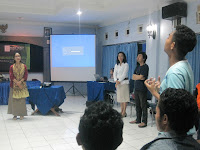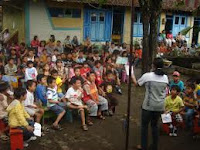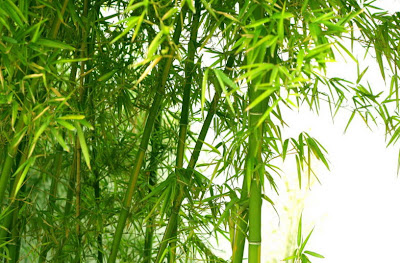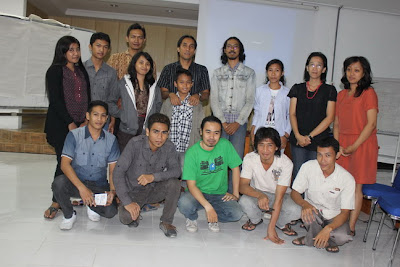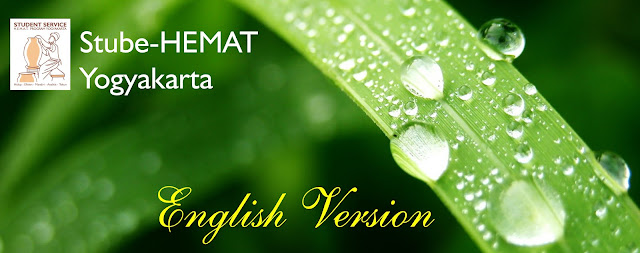by adminstube
Civil Society Training
The final conclusion of civil society in many aspects of reinforcement model is to make skillfull and competent society with inner motivation to be a quantitatively growing society that can be called as high-grade society. ***
by adminstube
Local Exposure
Local exposure is one of Stube-HEMAT Yogyakarta’s programs. This program gives college students, especially Stube-HEMAT activists as the priority, a chance to go back to their home or local town and to make an observation and mapping of their regions. This mapping is not only about potency that need to be improved but also problems. Further, this activity is held to prepare students to have job orientation and to open job network when they finish their study then come back home.
 Sofia Atalia (19) from Tarakan, East Borneo. She is a student of Law Faculty, Janabadra University. Sofia made a mapping and research about The Development of Garam Gunung ( Mountain Salt) in Long Midang Village, Krayan, Nunukan Regency, East Borneo. She hopes that the existence of that mountain salt can be more considered and becomes one icon of that region. Latter, it will strengthen the local economy.
Sofia Atalia (19) from Tarakan, East Borneo. She is a student of Law Faculty, Janabadra University. Sofia made a mapping and research about The Development of Garam Gunung ( Mountain Salt) in Long Midang Village, Krayan, Nunukan Regency, East Borneo. She hopes that the existence of that mountain salt can be more considered and becomes one icon of that region. Latter, it will strengthen the local economy.
 Balbina Bie (23) from Ende, Flores, East Nusa Tenggara. She is a student majoring of Environment Conservation Engineering of Institute of Environmental Engineering ‘YLH’ Yogyakarta. Ribie, her nick name, as she ‘s often called presents about The Environmental Support Capability of Tourism Area in Lake Kelimutu National Park, Moni Village, Kelimutu, Ende Regency, East Nusa Tenggara. The enchantment of Lake Kelimutu has been an attracting power for Flores tourism especially which is in Ende. Unfortunately, this capability is still limited and needs some development. Through this local exposure research, it is hoped that there will be some ideas and suggestions about Lake Kelimutu development.
Balbina Bie (23) from Ende, Flores, East Nusa Tenggara. She is a student majoring of Environment Conservation Engineering of Institute of Environmental Engineering ‘YLH’ Yogyakarta. Ribie, her nick name, as she ‘s often called presents about The Environmental Support Capability of Tourism Area in Lake Kelimutu National Park, Moni Village, Kelimutu, Ende Regency, East Nusa Tenggara. The enchantment of Lake Kelimutu has been an attracting power for Flores tourism especially which is in Ende. Unfortunately, this capability is still limited and needs some development. Through this local exposure research, it is hoped that there will be some ideas and suggestions about Lake Kelimutu development.
by adminstube
Assistance of Social Study for SMPK Tirta Marta Cinere 2012
Although these TurBa and Live In activities were relatively short, the students, teacher, Stube team, and the people of Watusigar got many experiences both funny and heartwarming ones. They learned that the problem of life can be solved if we keep on our trust that God is faithful and never leaves His children.
by adminstube
National Education Training
Then, how about the condition of education in Indonesia nowadays? The participants’ curiosity on the topic is answered in the discussion session with Bambang Wisudo (Executive Director of Sekolah Tanpa Batas). In this session, the participants were given a description of how the condition of Indonesian education nowadays is. Through a picture visualization, the participants’ mind is opened about phenomenon happen in Indonesian education nowadays, such us the school looks scaring, imprison, and the students look like uniformed robots who always have to be obedient to teachers’ command. Moreover, Bambang Wisudo said that primary education should be made enjoyable. The basic communication skill, such as listening, reading, speaking, and writing, have to be the main focus in the primary education.
SALAM and SD Mangunan education design inspires the participants to be able to design an ideal education in form of participants’ follow-up training. The follow-up training was held with an action plan to the society with the material they had gotten during the national education training. Some participants were planning to renew Monday school curriculum in their church to be more attractive, some were planning to build a learning studio to assist children around their boarding house in learning and to help anyone interested in writing about national education issues to make a blog. It is simple, but it is a kind of real action to contribute in education.
by adminstube
Assistance of Social Study for SMPK Tirta Marta Pondok Indah 2012
Finally, as the closing statement of this activity, Stube HEMAT asks all of you, “Let’s grow, be more mature, and bear fruit!”
by adminstube
Exposure Program
in Stube-HEMAT Yogyakarta
by adminstube
Conflict Management Training
by adminstube
Bamboo: The Hidden Treasure
by adminstube
Bamboo Program
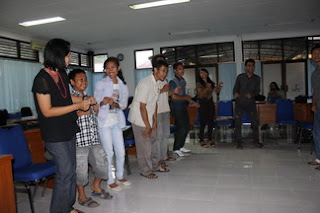
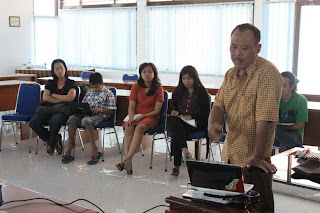 Knowing and discovering deeper about bamboo and the problems in Indonesia may answer the longing of Christian college students who joined to Bamboo and Environment Conservation discussion held on 17th of May 2012 in Wisma PU Yogyakarta. This Bamboo and Environment Conservation is the part of Bamboo Training Program Stube-HEMAT Yogyakarta 2012.
Knowing and discovering deeper about bamboo and the problems in Indonesia may answer the longing of Christian college students who joined to Bamboo and Environment Conservation discussion held on 17th of May 2012 in Wisma PU Yogyakarta. This Bamboo and Environment Conservation is the part of Bamboo Training Program Stube-HEMAT Yogyakarta 2012. 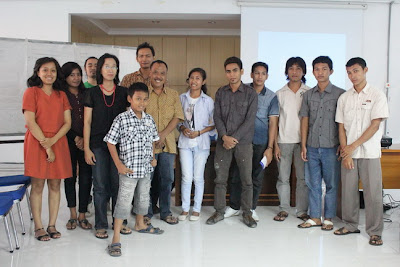 “Bamboo Observer Community provides Sambak Village inhabitants to look at Bamboo as a plant having a high-economic value. One of this community’s care toward bamboo is showed by the activity done in bamboo handycraft area to increase the inhabitants economy. The government at first also had a curiosity about the movement doing by this community. Then they finally turned down directly to the area, made a survey and had a dialogue with the members of this community”, said Mr. Herry answering one of the participant’s question.
“Bamboo Observer Community provides Sambak Village inhabitants to look at Bamboo as a plant having a high-economic value. One of this community’s care toward bamboo is showed by the activity done in bamboo handycraft area to increase the inhabitants economy. The government at first also had a curiosity about the movement doing by this community. Then they finally turned down directly to the area, made a survey and had a dialogue with the members of this community”, said Mr. Herry answering one of the participant’s question. The learning process about Bamboo and Environment Conservation became more completed by the coming of Indra Setiawan from Sahabat Bambu Community (Bamboo Practitioner). Indra tried to open the participants’ insight about the riches of bamboo species in Indonesia and other countries. Indra also explained how to conserve and to cultivate bamboo.
by adminstube
Follow Up of Capacity Building Program
by adminstube
Exposure to KIAT ESEMKA (Capacity Building)
Learning from Pak Kiat’s life and the development strategy of Surakarta City, makes Stube students more enthusiastic to increase their capacity in Globalization era which demands college students to upgrade themselves and always struggle not to be slaves in their own country.
by adminstube
Web Archive
2024 (6)Total: 449




